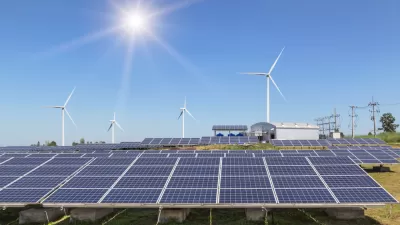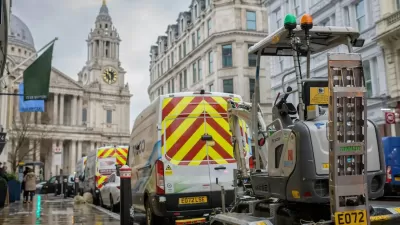The stream of Washington bailouts is a doomed attempt to revive a 'zombie economy', argues James Howard Kunstler. He believes we need to start organizing new, local economies built around growing food, making things and transporting them by rail.
"All the activities based on getting something-for-nothing are dead or dying now, in particular buying houses and cars on credit and so it should not be a surprise that the two major victims are the housing and car industries. Notice, by the way, that these are the two major ingredients of an economy based on building suburban sprawl. That's over, too.
All this obviously begs the question: what kind of economy are we going to live in if the old one is toast? Well, it's also pretty obvious that it will have to be based on activities productively aimed at keeping human beings alive in an ecology that has a future. Once you grasp this, you will see that there is no reason to despair and more than enough for all of us to do.
To be specific about this new economy, we're going to have to make things again, and raise things out of the earth, locally, and trade these things for money of some kind that we earn through our own productive activities. Don't make the mistake of thinking this is optional."
FULL STORY: Zombie Economics

Maui's Vacation Rental Debate Turns Ugly
Verbal attacks, misinformation campaigns and fistfights plague a high-stakes debate to convert thousands of vacation rentals into long-term housing.

Planetizen Federal Action Tracker
A weekly monitor of how Trump’s orders and actions are impacting planners and planning in America.

In Urban Planning, AI Prompting Could be the New Design Thinking
Creativity has long been key to great urban design. What if we see AI as our new creative partner?

King County Supportive Housing Program Offers Hope for Unhoused Residents
The county is taking a ‘Housing First’ approach that prioritizes getting people into housing, then offering wraparound supportive services.

Researchers Use AI to Get Clearer Picture of US Housing
Analysts are using artificial intelligence to supercharge their research by allowing them to comb through data faster. Though these AI tools can be error prone, they save time and housing researchers are optimistic about the future.

Making Shared Micromobility More Inclusive
Cities and shared mobility system operators can do more to include people with disabilities in planning and operations, per a new report.
Urban Design for Planners 1: Software Tools
This six-course series explores essential urban design concepts using open source software and equips planners with the tools they need to participate fully in the urban design process.
Planning for Universal Design
Learn the tools for implementing Universal Design in planning regulations.
planning NEXT
Appalachian Highlands Housing Partners
Mpact (founded as Rail~Volution)
City of Camden Redevelopment Agency
City of Astoria
City of Portland
City of Laramie





























